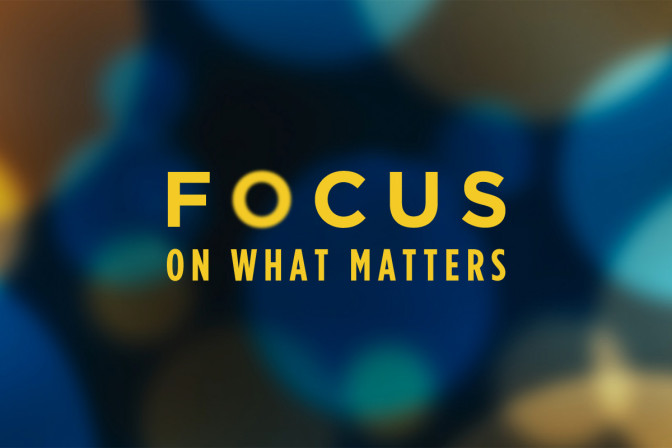This is an interesting little rundown of a number of top digital marketers all essentially saying the same thing, which is “After a while, you need to cut bait on some projects.” It kind of lines up with the idea of “An Essentialist Movement” — namely the culture of how busy we are will lead to people eventually only focusing on the stuff that actually matters, which feels like a nice world to live in.
Here’s a quote from the digital marketing rundown, which is essentially speaking to the idea of “opportunity cost:”
One of the people Rory interviewed said to him, “Rory, you have to realize it’s impossible to go through life without saying ‘no’. You are always saying ‘no’ to something. Any time you are saying ‘yes’ to one thing, you are simultaneously saying ‘no’ to an infinite number of others.” Meaning if you’re not consciously saying “no” to things that don’t matter and don’t work, you will end up unconsciously saying “no” to things that do matter and do work. “Get rid of that fear that, ‘I have to be doing this because everyone else is doing it.’”
This is all about digital marketing as presented here, but this life advice could work broadly in a number of areas:
- Focus on the stuff that works.
- (If you aren’t sure what works, test it.)
- Let the other stuff go.
The real goal of life — I think — is to move yourself as far away as possible from fear, greed, and ignorance. (Very few people realize that, though.) You’re also supposed to realize that things are often counter-intuitive in terms of how you achieve success.
I wouldn’t necessarily go and say my life is some bastion of knowing-what-the-hell-I’m-doing, so I’ll stop here with the personal advice.
The point is this: we’re often very scared to say “No,” because “no” is a powerful word in the wrong direction. We feel like, every time we say “no” to someone, we’re closing a door or missing out on some potentially great opportunity. That could be true, but it’s very rare that the meeting you turn down becomes the next Apple computers. Most of the time, the meeting you turn down is something you forget about six hours later. Attention spans are shrinking and yet, at the same time, there are some people estimating an average middle manager at a company is involved with 32 projects at a given time.
There’s only so much personal bandwith you can give anything, and I’m still just talking about work — which, broadly speaking, isn’t even that important. Companies can crumble into the ocean like a glacier and society stays intact; what really matters is your family and how you evolve as a person and a member of that. Your time has to be predominantly focused on that side, even if work deliverables seem tangible and real and scary.
So stop running around from A to B to C to Z and focus for a second on what’s working. Flow with that. The stuff that isn’t working, or is taking up time? Get rid of it. New things will come and drain your time; don’t worry. And then, if those don’t start becoming relevant or productive, you flush them out too.
Phrased in the words of someone smarter or more successful than I, here’s advice from the founder/CEO of Social Media Examiner:
Mike recommends the book Necessary Endings, by Henry Cloud. The book likens our life and work to a rosebush. We produce more than we can possibly sustain. To produce prize flowers, we have to cut off some branches to let the rosebush become what it’s truly meant to be.
A little cliche, sure — but this stuff does matter.
Focus on what’s going right and what matters.
Do that stuff.
Look at the stuff that’s a time-suck and/or doesn’t matter.
Eliminate that stuff.
There’s 24 hours in a day, and you probably sleep 5-8 of those. So why keep saying yes to things that just cut into that number even more?

Great read. This idea of focusing on what works should be applied to business operations across the board. Much of what causes disengagement among employees is the sheer volume of bloated busy work that just gets in the way of revenue-producing and/or other essential business processes. If a person has to constantly justify his/her own existence, then that’s a tell-tale sign of inefficiency or even redundancy.
Steve, I think you were the one who (rightfully) taught me that most jobs are essentially digital paper-pushing anyway, no? I mostly agree with that idea. Digital paper-pushing + a need to justify how relevant what you do is and how “no one understands” your role. Sheesh.